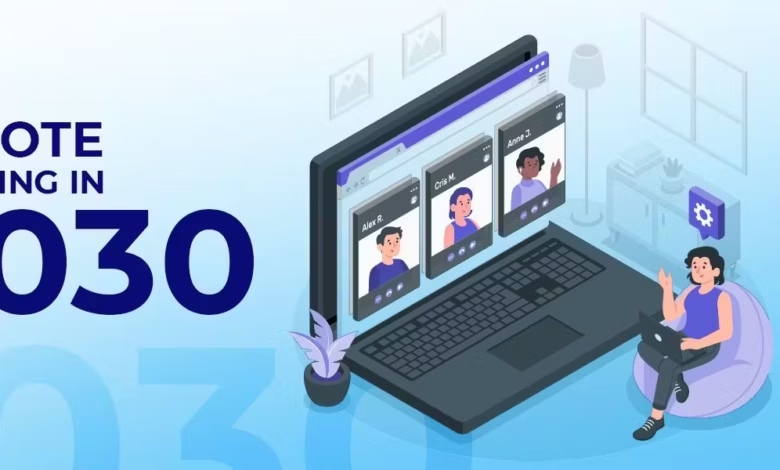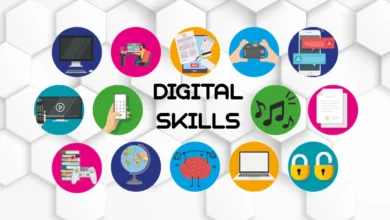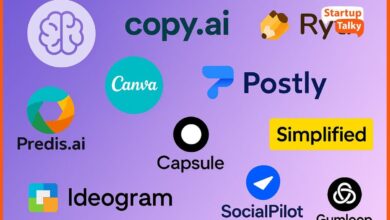The Future of Remote Work: What to Expect by 2030

Remote work has changed a lot in the past few years, especially after the COVID-19 pandemic. What used to be something only a few people did from time to time has now become a big part of how many of us work every day. The future of remote work is exciting and full of possibilities.
By 2030, remote work will look very different from today, thanks to new technology, fresh ways of working, better care for employee well-being, and teams made up of people from all over the world. Understanding what the future holds for remote work will help both employees and employers prepare for these changes.
In this article, we will talk about the big changes to expect in the future of remote work. We’ll look at how new technology will make remote jobs easier and more natural, how work models like hybrid and flexible schedules will become the norm, what companies will do to support mental health and work-life balance, and how remote work will open doors for a more global and diverse workforce. We’ll also explore the skills that will be important for remote workers in 2030 and the benefits and challenges that come with this way of working.
Advances in Technology Driving Remote Work
Technology is the reason remote work has grown so quickly, and it will keep making remote work better in the future. New tools and systems will help workers connect, communicate, and get their jobs done no matter where they are.
First, cloud computing will be even more important. The cloud lets us store files and use programs online instead of just on one computer. By 2030, more companies will use cloud services to help their teams share information safely and quickly. This means workers can easily access what they need from anywhere, making remote work smoother.
Next, artificial intelligence (AI) and automation will help us work smarter. AI will take care of routine tasks like scheduling meetings, sorting emails, or organizing data so workers can focus on important creative work. AI will also improve hiring processes and tailor work experiences for each person. Automation will handle repetitive jobs, which will boost productivity and reduce stress.
Lastly, new tools for collaboration like virtual reality (VR) and smarter communication platforms will make remote teamwork feel more real. Imagine joining a meeting where it feels like you’re sitting around a table with your coworkers, even if you’re miles apart. These tools will help teams share ideas, solve problems, and build relationships just like they would in an office.
Read Next: 10 Best Niches for Dropshipping in 2025
Changing Work Models
The way people work is changing too. Instead of everyone being in an office from 9 to 5, work models are becoming more flexible to fit different needs.
Most workers will use a hybrid work model by 2030. This means they split their time between working at home and in the office. Hybrid work gives employees the comfort of home and the chance to meet people in person. It combines the best of both worlds.
Some jobs will be done completely remote, allowing people to work from anywhere around the globe. This gives workers freedom to live where they want and lets companies hire the best people, no matter where they live.
Employees will also want more control over their work hours. Flexible scheduling means people can choose when they work to better balance their job with family, hobbies, and rest. This kind of flexibility helps workers stay happy and productive.

Employee Well-being and Work-Life Balance
Taking care of employee well-being will be a big focus in the future of remote work.
With more work happening at home or outside the office, people might feel lonely or stressed. That’s why there will be more support for mental health through apps, virtual counseling, and wellness programs created for remote workers. Keeping workers happy and emotionally healthy will help everyone do better.
Instead of just trying to balance work and life, people will blend the two more naturally. Work-life integration lets workers shape their days so that work fits around important family moments, exercise, or hobbies. This approach respects that work is part of life, not something that should fight with it.
Employers will also offer programs and resources to help workers stay physically healthy and comfortable while working remotely, like paying for good chairs, desks, or internet service.
Read Next: The Most In-Demand Digital Skills in 2025
Global Workforce and Diversity
One of the biggest changes in the future of remote work is that companies will hire people from all over the world. This is great news for everyone.
Because geography won’t limit hiring anymore, companies will tap into global talent pools. Workers from different countries, cultures, and backgrounds will join the same team, making work more creative and diverse.
Remote work will also help build inclusive teams. People who may have had trouble working in traditional offices, like parents, people with disabilities, or those living far from cities, will have more chances. Teams will become richer with different points of view and experiences.
With so many people working from different places, there will be clear remote work policies to make sure all employees are treated fairly. These guidelines will cover communication, access to resources, and advancement opportunities, whether someone works fully remote or a few days in the office.
Essential Skills for Remote Workers by 2030
To succeed in remote jobs by 2030, workers will need new skills.
Digital communication will be key. This means being able to write clearly, speak well in video calls, and understand online cues like tone and body language, even through a screen.
Data literacy will help workers understand reports, charts, and numbers to make smart decisions. Knowing how to work with data is important as more jobs use information to measure success.
Since remote work depends on technology, workers will need cybersecurity awareness. This is about keeping company data safe by using strong passwords, knowing how to spot scams, and protecting devices from cyber threats.
Skills in cloud and project management will be useful for working with online tools that organize tasks and file sharing. These skills will help remote teams stay on track and meet deadlines.
Lastly, AI fluency will be important. Workers will need to know how to work alongside AI, using its power to handle routine tasks and speed up workflows without losing the human touch.
Benefits and Challenges
The future of remote work comes with good things and some hurdles.
Benefits
- More flexibility allows people to work when and where they choose.
- Companies can hire talented people from anywhere in the world.
- Many workers find they are more productive without office distractions.
- Remote work helps improve work-life balance, letting employees spend time on family and self-care.
Challenges
- Remote work can sometimes cause workers to feel isolated or alone.
- Staying connected with teammates is harder without face-to-face contact.
- Some people find it tough to avoid distractions at home.
- Ensuring everyone gets a fair chance for promotions or raises can be tricky when people work in different ways or places.
Companies and workers will need to work together to solve these problems and make remote work successful.
Read Next: What Is “Generative Engine Optimization” — and Why Everyone’s Talking About It
Conclusion
The future of remote work by 2030 will be exciting. Technology will make remote jobs easier and more natural. Work will be more flexible with hybrid and fully remote models. Employee well-being will get extra attention, making work less stressful and more balanced. Teams will be more global and diverse, opening up new opportunities for everyone. And workers will need new skills like digital communication, data knowledge, and AI fluency to do their best.
To thrive in the future of remote work, both companies and employees should start preparing now. Learning and adapting will be key. The workplace is changing fast, and remote work is becoming a normal, valuable part of how we live and earn a living.
By 2030, the future of remote work will be full of opportunity for those ready to embrace it.
Frequently Asked Questions
1. Will remote work take over all jobs by 2030?
No, not all jobs will be remote. Most people will use a hybrid model that mixes working from home and the office. Some roles will still need in-person work, but remote work will be much more common.
2. What skills should I learn to succeed in remote work by 2030?
Important skills include clear digital communication, basic data understanding, cybersecurity habits, and knowing how to use cloud and AI tools. Being adaptable and good at managing your own time is also essential.
3. How can companies help with mental health for remote workers?
They will offer virtual counseling, mental wellness apps, and apps that check in with employees regularly. Companies will also encourage breaks, social connections, and flexible schedules to reduce stress.
4. How will remote work help companies hire better people?
Remote work lets companies hire talent from anywhere in the world, opening up chances to find the best people regardless of their location. This will make teams more diverse and creative.



